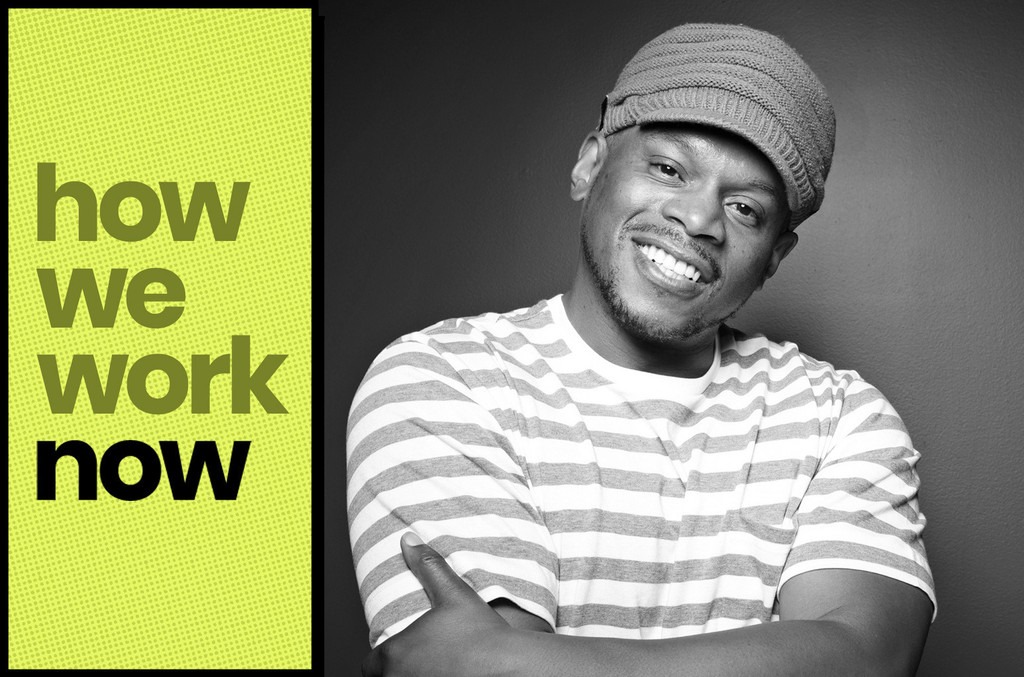In a new series amid the coronavirus pandemic, Billboard is asking individuals from all sectors of the music business to share stories of how they work now, with much of the world quarantined at home and unable to take in-person meetings, attend conferences or even go into the office. Submissions for the series can be sent to [email protected]. Read the full series here. This installment is with Radio Hall of Fame nominated journalist Sway Calloway, the host of Shade 45’s Sway in the Morning on SiriusXM.
Sway Calloway: Initially, I felt a case of bewilderment. I caught word that times were changing and [leaving the studios] was a possibility months before [COVID] actually happened. We kind of started the conversation a couple of months prior. We been out of the building since the middle of March. I think someone in January came up to me and said, “Have you thought about how you want to work when this COVID hits us?” I said, “Ah. Come on, man? Really?”
The thing about radio, radio has always been a conduit of information. It’s always managed to adjust through the times. Whether it’s war, the pandemic or natural disasters, you always counted on radio. It didn’t really take that long to adapt. When the decision was made that we would no longer be coming into the studio, at the front of the week, there were rumblings. By the middle of the week when we stopped coming, I may have recorded one show, maybe two shows in advance — kind of a “best of thing” while we figured out what we were gonna do. By the top of the next week, we already circulated these machines called Comrex. They allow you to broadcast from where ever you are and are used to bounce the signal from New York to D.C., where we have somebody in D.C. running it so we can be live everyday.
My objective was to be live everyday. To me, that’s what radio was meant for: for these times that keep some type of normality for your audience. We have a very broad audience with a very broad demographic. So you might have people in their 20’s to people in the 50’s listening in and everything in-between. It’s kind of interesting to me. With Sirius XM, we’re subscriber-based. So you got people from all over the stratosphere checking in. So’d we have people checking in. That part was kind of challenging, but also exciting in being able to rejuvenate everything and see how we would respond. Fortunately, for us, we’ve done live broadcasting since I’ve came on that channel in 2011.
To be honest with you, we didn’t miss a beat. We jumped on Monday, but the conversation got different because of COVID. In the beginning, COVID was a scary thing. If you were in New York, they had more trucks outside of hospitals. So we didn’t know what we had going on. We started hearing about Slim Thug, Scarface, Fred Tha Godson and then, Fred passed away. It was just a very, very depressing time with the quarantine, as well. So having to adjust with being in the house and not having the access to the studio was difficult. It was challenging, but at the same time, exciting, because we came and answered the bell to give the people a service. I think we’ve done that really well. If you listen to the show, it doesn’t sound like it missed a beat.
One of the first guests we’ve had on the show was Giancarlo Esposito. He told us some powerful stories about Adam Clayton Powell Jr., Dr. Martin Luther King Jr., Malcolm X and we were speaking about leadership in our communities. That conversation for me was indicative of what we do. When we came on air in 2011, everybody was sharing the same pool of artists, the same pool of guests. And I learned back in the ’90s not to pigeonhole yourself and we got a lot of interest. I’ve always been heavy on politics, even in the ’90s.
From 2011 and on, I really put the political agenda and movement all across the board and also a variety of depth like Judd Apatow, who was on our show as well, talking about one of his new projects. We also had Tamika Mallory talking about Until Freedom and we helped raise awareness about Breonna Taylor, George Floyd and Ahmaud Arbery. We had D-Smoke on the show as well to talk about doing his performance at the BET Awards with his mother and brother. So special shout-out to to Heather B, Tracy G, Kelly Jackson, King Tech and DJ Revolution because we really tried to transform the conversation from one dimension to many dimensions.
As a Black man and a journalist, I learned during this climate that we as a people are amazing. That we’re gifted. We have an appeal that’s so alluring and we have a glow that’s so bright that it scares folks. People don’t want us to eat at the table. People don’t even want us to live in an equally balanced society that has no inequities. It tells me that we’re resilient. I learned that when we’re on our square, there’s nothing like us. We’ve seen this before. I think we’re starting to understand that our women are under attack. We need to protect our Black women. The way they attack our women is different. Women have very powerful voices and influence. To me I think they’re the key to all of this #BreonnaTaylor.
You can vote to have Sway Calloway inducted in the Radio Hall of Fame here.


